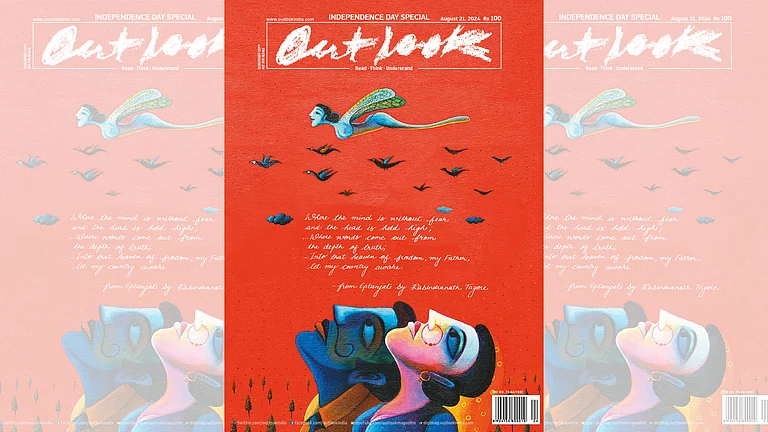Although the truth lies somewhere in the secret parleys that the man of peace held with rss chief K.S. Sudarshan, the onus for the failure of the dialogue is being put on the Muslims. The vhp would have liked some more humiliation heaped on the community but the seer efficiently managed to highlight the unreasonable and rigid stereotype that the vhp et al have been thrusting upon the community. And this will do for the time being.
The AIMPLB is now desperate to clarify its stand. "We did not close our doors. But the second letter was such a departure from the seer’s earlier stand that we couldn’t accept it. We have not changed our position that we are ready to come to a reasonable compromise," says AIMPLB spokesman Maulana Sajjan Nomani.
Soon after the Shankaracharya’s letter reached the board on June 20, the compromise-seekers started deliberating on the course of further negotiations. While former civil servant Syed Shahabuddin and the rest who have been advocating a "judicial settlement only" formula criticised the move openly, the board still went ahead with writing a letter seeking clarifications from the seer on his June 16 formula. Once this letter reached the Shankaracharya, the rss and the vhp intensified their pressure on the seer and, as it turned out, he capitulated.
The Shankaracharya’s response to Maulana Rabe Hassan Nadwi’s missive was music to the Sangh: "Donation of the disputed area will only be the permanent solution.... Kashi, Mathura and Ayodhya—all the three belong to the Hindus and keeping in mind the larger interest of the country and communal harmony, if not today but some time or the other, these places have to be given to the Hindus. The Muslims have to mentally prepare themselves for this".
Once this new letter reached the AIMPLB, it was time for the hardliners on both sides to rejoice. Kerala MP and Indian Union Muslim League president G.M. Banatwala declared during the meeting that the Shankaracharya was toeing the rss-line and the talks naturally would lead to a dead end. The formula was finally rejected. Citing the failure of the talks as an added rationale, the vhp stepped up the rhetoric for a legislation on Ayodhya while the hawks in the board were beaming before TV cameras.
Leading the pack was Zafaryab Jilani of the Babri Masjid Action Committee and Shahabuddin. The latter attended a seminar with Vishnu Hari Dalmia on July 9. "There will be a settlement of the dispute tomorrow if the temple plan is modified," he declared, adding with a sarcastic twist that the Shankaracharya’s second missive "was an ill-advised demand for a donation of the disputed land, it was such a turnaround from the first proposal that it took us five minutes to turn it down". Jilani said the board was left with no choice: "The formula in its present form was not acceptable."
Banatwala argued the Muslim case before TV cameras in a language that would only corner his community further. "The Shankaracharya seems to be acting on behalf of a particular political party. His remarks are dangerously similar to those of the rss," he said. Mukhtar Abbas Naqvi summed up the reason for the failure of the talks as the "Taliban-style mentality" of the board.
Political observers feel that intemperate statements by Muslim leaders only ends up lending credence to charges levelled against Muslims by organisations like the vhp. Former Union minister Arif Mohammed Khan, who resigned from the Congress following his principled stand that the government should not bow to pressure from the clergy on the Shah Bano case, says that retrogressive public posturing by their leaders has resulted in further marginalisation of Muslims.
"There was no need for the board to get entangled in this mess. The message that has gone out after this fiasco is that we are an isolated, inward-looking community which is not ready to compromise on issues of national importance. As it happened in the Shah Bano case, such stands by the Muslim leadership help in larger acceptance of the politics of Hindu revivalism among the common Hindu masses," Khan says.
For a community that has adhered to all judicial and administrative decisions on Ayodhya from the time the idols were forcibly installed on the mosque site in 1949, this is an unfortunate development. Maulana Mehmood Madani of the Jamat-e-Ulema-e-Hind, the sole AIMPLB member who is also a party to the original title suit, says this is no time for settling the dispute with the Shankaracharya. "Why should the AIMPLB allow itself to be trapped like this? We’ve always said we’ll abide by the court decision even if it is negative. Then why are we willing to jump into such extra-judicial, unconstitutional settlements? Why should we be seen as a hard, uncompromising lot when we did not utter a word when the mosque was locked or when it was re-opened?" he asks.
Marginalising and demonising Muslims in the name of negotiated settlements seems to be the name of the game. The irony is that the Muslim leadership seems to be unwittingly lending a helping hand in the whole exercise.


























